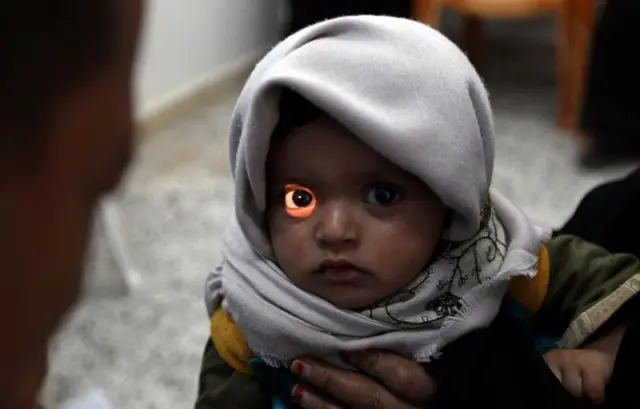UN secretary-general's special envoy for Yemen, Ismail Ould Cheikh Ahmed, said that reports from several Yemeni cities indicate the magnitude of suffering that the Yemeni people are going through in light of shortages in basic services, a UN spokesman said here Wednesday.
"This suffering should, however, turn into an incentive to reach a rapid and comprehensive solution as we approach the month of Ramadan," UN spokesman Stephane Dujarric said at a daily news briefing here.
"He continued to urge the parties to make concessions and put the interests of Yemen and Yemenis above all."
The overall healthcare system throughout Yemen has all but collapsed, with more than 600 health facilities closing their doors due to the lack of financial resources to procure medicine, supplies and fuel for generators, he said. "Thousands of medical staff have also gone unpaid or left the country."
It is estimated that nearly 10,000 children under the age of five -- in the past year alone -- have died from totally avoidable and preventable diseases such as diarrhoea and pneumonia.
The Yemeni peace talks are continuing in Kuwait on Wednesday, and three sessions of those talks were completed on Tuesday, with separate sessions convened with the Yemeni Government delegation and the delegation of Ansarullah and the General People's Congress.
At the working group level, the parties also discussed the lists that were exchanged earlier this week in order to release a number of detainees before Ramadan, the Muslim holy month which begins on June 5 and ends on July 5.
The United Nations-facilitated Yemeni peace talks began in late April in Kuwait in parallel meetings, with a committee making headway by exploring a proposal to release 50 percent of all prisoners and detainees held by the parties before the month of Ramadan.
Ramadan is the ninth month of Islam's lunar calendar, a system which sees each month begin at the sighting of the new moon.
 简体中文
简体中文

